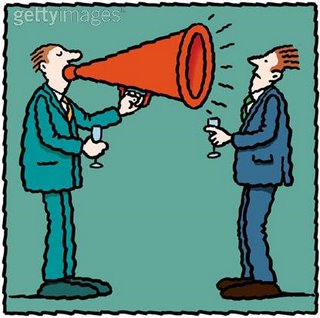
Saw a SHANE advert in one of my schools raving about a UK-themed, Japanese tourist attraction entitled “Blitish Hills”.
A surprising spelling error from SHANE there. Especially since we are, first, a language school and second, a British language school.
A low blow, but it made me laugh.
You take pot luck with pronunciation over here. At first, I was pooh-poohing the traditional Western view that all Japanese people say “flied lice”.
They usually they opt for a very soft “d” sound called a “flap”, instead of the “l “or “r”. Hence my name is pronounced: Fidip Doordi
But I have since met people who really do say “childlen”, “Engrish” and one guy who, when he was listing the months of the year, wrote “Aplil”.
The Japanese have their difficult words too. Take the ubiquitous but rather tricky “desu” - a multi-purpose word for is/be/are/. The word is not pronounced “desoooo”, but more like “des *hu*!”.
The trick with “desu” is to stop somewhere between the “s” and the “u” and dramatically cut the word short by tightening your chest like you’ve just stubbed your toe on the bed.
We’ve all done it; instead of screaming, you kind of go “hup!” and bite your lip silently for about a minute while you attempt to absorb the pain back into your body.
Also in Japanese, there are no strings of consonants. Consequently they often need to insert random vowels to make the word more palatable.
Here are some translations:
Next....................................Knicker Setter
Scrambled Egg.................. Soccer Am Bullet Air Go
Stereo................................. Soot Hairy You
Mrs Mouse (mentioned in a previous entry) is also the finest purveyor of this “Irritable Vowel Syndrome”. She is incapable of saying a word without putting a PISSING VOWEL ON THE END.
Me: What do we call this tense?
Mouse: Whatto do we callo thisso tenso?
Me: No I said that....You don’t understando a bloody wordo I’mo sayingo do you?”
All this Consonant Kerfuffle means that Roy Walker’s Catchphrase is unlikely to take off over here as, fact fans, the word “catchphrase” has the longest string of consonants in the English language.
Unless they call it “Cat A Chair Fur Air Sir”.
4 comments:
A bit exaggerated but know what you mean. It's better criticism than the other one I had in the past, which was "how Japanese pronounce Hercules is so wrong" but this guy didn't even know how to pronounce in Greek, Latin, or even French.
When a word is adopted into a different language, the accent wouldn't be exactly the same because what was adopted is word, not the whole languages. Think about it, you know the word "Karaoke" and how many times do I have to teach the right way to say it?
I guess English are so obsessed with accent itself. By the way, German is also vowel-focused languages with flat intonation like Japanese. How do you cope when a German makes criticism on German-turned-into-English-words for wrong pronunciation? I understand your stress with work, but you could be better than that. This just sounds too pathetic.
In fairness Tak, Phil is teaching people to speak English, not telling them how to say English words adopted into Japanese. If you want your English to be understood around the world, inserting vowels everywhere isn't going to help at all.
If you think we're precious about accent and pronounciation then you should spend some time in France or Russia. Every day the English language is murdered by everyone (especially North Americans) but at least we glibly accept that the copyright on it probably ran out several centuries ago.
I'm learning at lot of Russian at the moment, but I can definitely say that saying words slowly separating out syllables and consonants does not work here if you want to be understood. For example, the number 50 is techincally Pyat-Desiat (Five-Ten) but saying it like that is very much like saying 'Five-Ten' in English. No-one understands. You have to run it all together so it sounds a bit like 'Peed-sat'.
There were a few Japanese tourists on my ship to Vladivostok and they were really trying, but really struggling, with the Russian. 'Sapsiba' was ok but 'Pazhalsta' seemed to be particularly tough for them, and Russian staff are rarely in any mood for patient understanding.
Okay! Now I'm excited to find out the truth, how do you pronounce Karaoke propoerly?
Was away from the blog for a while, and just found exciting reaction from Paul.
There are a gap between the sounds of adopted words in Japanese and in
English, and maybe it's not widely understood unless they speak both language on daily basis. Then Phil's task is to show the difference, rather than making
laugh about it. This is for both side, if he has to speak in Japanese, he should give in for how they say.
To Paul, your Russian experiment is very interesting. But even if you made it to natives, I believe your accent is still "foreign" to them and there would have been forgiveness for that.
To Giacomo, "saying words slowly separating out syllables and consonants" helps when it comes to Japanese. Say "Karaoke" as "Ka (as CAnary) Ra (as LAd) O Ke (as CHEmical)", then you are one of us, however I swear, no Brit would recognise the sound even if they know the word.
PS;
As for German, actually, there is a word adopted with original accent, which is "handy (means mobile phone)", but you have to say it as American. I said it like British, then my teacher kindly corrected my accent.
Post a Comment